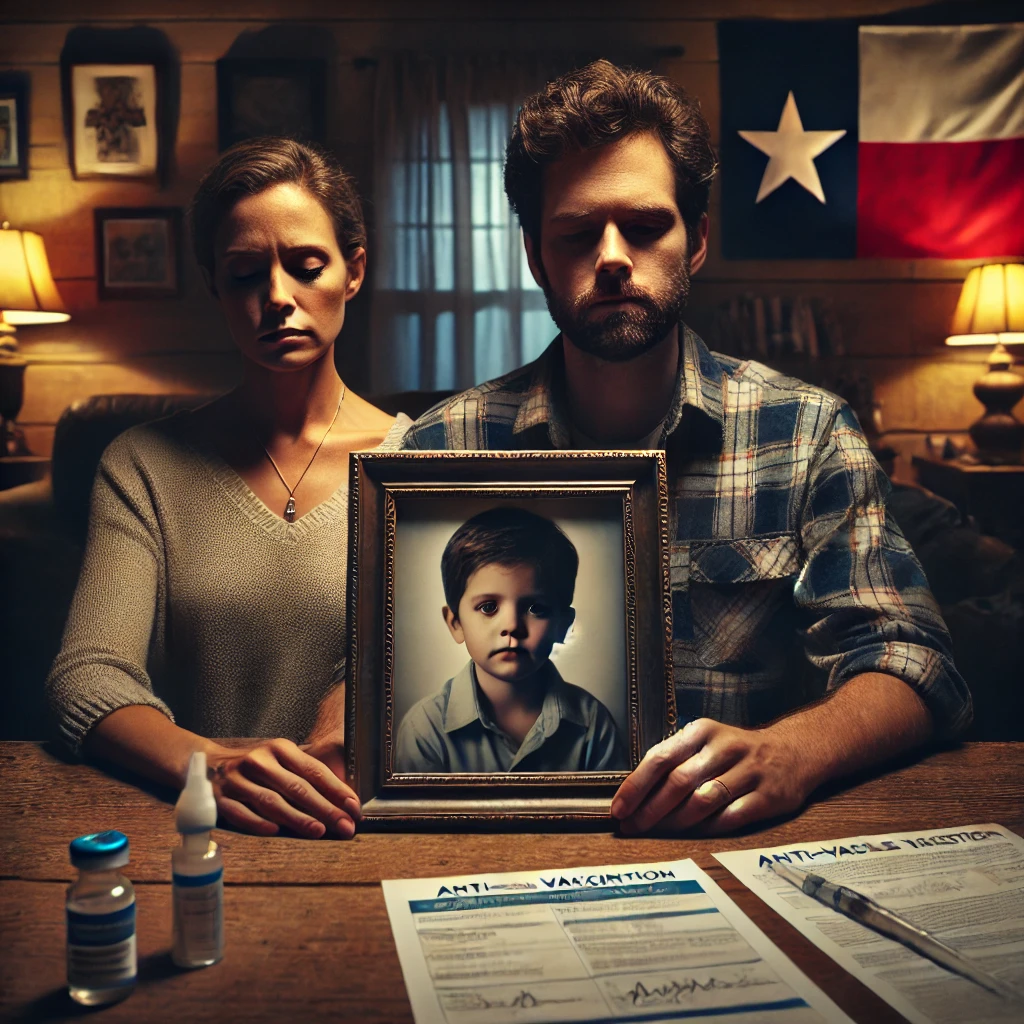Introduction
The recent death of a 6-year-old child in Texas due to measles has reignited discussions about vaccine hesitancy. The tragedy has drawn national attention, especially because the parents of the deceased child remain firmly against vaccination, even in the wake of their loss. Their stance has sparked intense debate, raising questions about personal choice, public health, and misinformation surrounding vaccines.
The Tragic Incident
The young child, whose identity has not been publicly disclosed, was diagnosed with measles after experiencing high fever, rash, and respiratory complications. Despite medical intervention, the disease progressed rapidly, leading to severe complications such as pneumonia and encephalitis, which ultimately proved fatal.
Texas health officials confirmed that the child was unvaccinated, a factor that significantly increased their vulnerability to the disease. Measles, a highly contagious virus, can be prevented with the measles, mumps, and rubella (MMR) vaccine, which has been widely credited with reducing cases worldwide. However, due to vaccine hesitancy, the U.S. has seen a resurgence of the disease in recent years.
Parents’ Perspective
In an emotional statement, the parents of the deceased child expressed their grief but maintained their opposition to vaccines. They cited concerns about vaccine safety, alleging risks such as autism, immune system overload, and potential long-term side effects. Their beliefs stem from widely circulated but scientifically debunked claims, particularly those originating from a discredited 1998 study that falsely linked the MMR vaccine to autism.
Despite facing backlash from the medical community and the public, the parents stated that they believe their child’s death was an unfortunate but natural event. They argue that individuals should have the right to make medical decisions without government interference, viewing vaccine mandates as an infringement on personal freedoms.
Medical Experts Weigh In
Healthcare professionals have responded with concern, emphasizing that vaccines are among the safest and most effective tools in disease prevention. Dr. Emily Carter, a pediatric infectious disease specialist, commented, “The loss of a child to a preventable disease is heartbreaking, and it underscores the critical importance of vaccination.” She further explained that vaccines undergo rigorous testing and monitoring to ensure their safety and efficacy.
Dr. Carter also pointed out that unvaccinated children pose a risk not only to themselves but also to others, particularly infants, elderly individuals, and immunocompromised individuals who cannot receive vaccines due to medical conditions.
The Rising Trend of Vaccine Hesitancy
Vaccine hesitancy is a growing concern in the U.S., fueled by misinformation, distrust in pharmaceutical companies, and political influences. Texas, in particular, has seen an increase in vaccine exemptions, leading to outbreaks of preventable diseases such as measles and whooping cough. Public health officials worry that such incidents could become more frequent unless vaccination rates improve.
Organizations like the Centers for Disease Control and Prevention (CDC) continue to advocate for vaccination, providing extensive research and data debunking myths surrounding vaccine safety. Despite these efforts, anti-vaccine sentiment remains strong among certain communities, often driven by social media misinformation and influential anti-vax figures.
Legal and Ethical Considerations
The debate over vaccines extends beyond personal beliefs to legal and ethical questions. Some states have implemented stricter vaccine mandates, requiring children to be immunized before attending school. However, Texas allows personal and religious exemptions, making it easier for parents to opt out.
Legal experts argue that while individuals have the right to make medical choices, those choices should not endanger public health. Ethically, the refusal to vaccinate a child who is too young to make an informed decision raises concerns about parental responsibility and the child’s right to health protection.
The Role of Public Awareness and Education
Public health experts stress the need for education to combat vaccine misinformation. Outreach programs, transparent communication from healthcare providers, and community engagement initiatives can help address fears and misconceptions.
For example, countries like Australia have successfully increased vaccination rates by implementing public health campaigns and offering incentives for immunization. Experts suggest that similar approaches, combined with stronger policies, could help the U.S. address vaccine hesitancy effectively.
Conclusion
The heartbreaking loss of a 6-year-old child to measles in Texas serves as a stark reminder of the importance of vaccines. While the child’s parents remain steadfast in their anti-vaccine stance, the incident has reignited discussions on public health responsibility, vaccine safety, and the consequences of misinformation.
As the debate continues, healthcare professionals, policymakers, and communities must work together to ensure that preventable diseases do not claim more lives. Vaccination remains one of the most effective ways to protect individuals and society as a whole, and increasing awareness is crucial in the fight against vaccine-preventable diseases.
